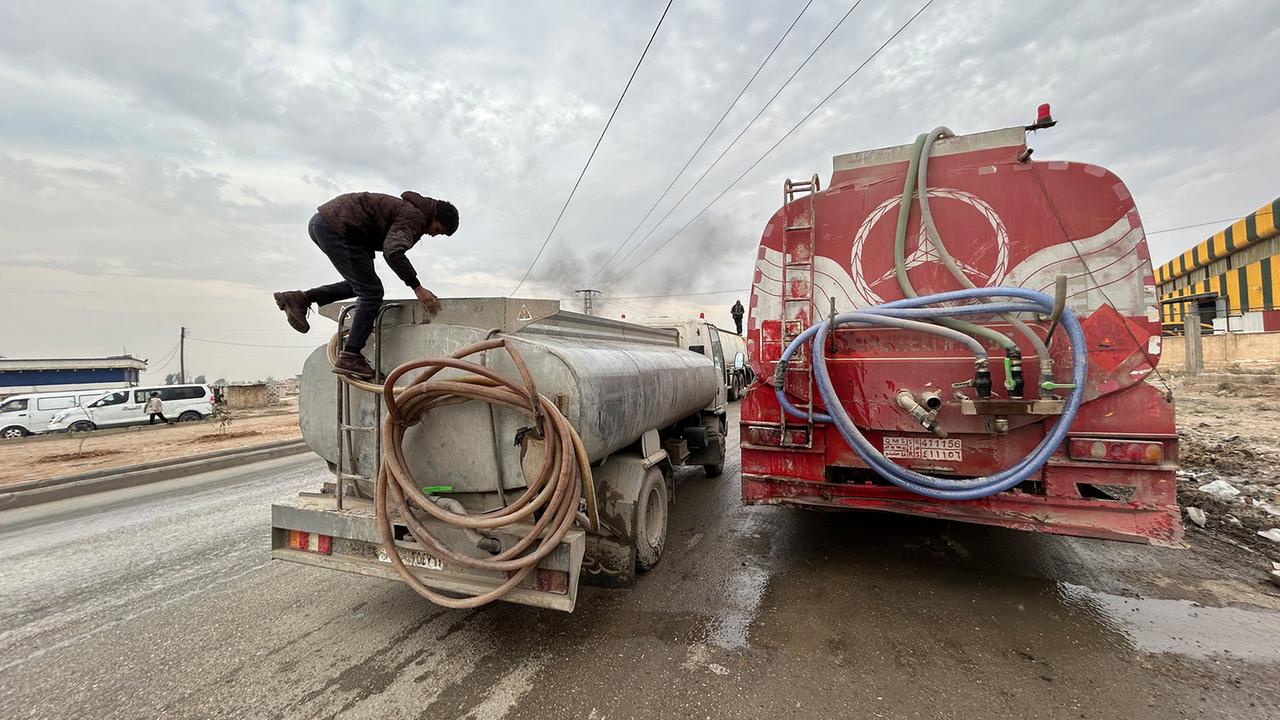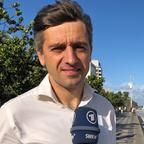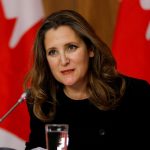The supply situation in northeast Syria is precarious. Tens of thousands of new refugees pose problems for the mayor of Hasakah. There is a lack of accommodation and water for the population.
When the tractor delivering water drives through their dusty street, Berivan Abbas breathes a sigh of relief. Her family has been stranded for four days – in a shell of a building in Kamischli without running water. “Water deliveries have become very expensive. Because only my husband works, I can rarely have a truck come.”
Because of rampant inflation, Berivan would have to pay 90 euros a month to have enough water for her family of four in her old metal tank. For them, this is almost priceless in the current situation in northeastern Syria – a region that has slipped ever deeper into economic crisis as a result of years of civil war.
Islamist militias allow river to dry up
The high price of water also has other causes. Many rivers in the Kurdish-dominated area are dry – including the Chabour River. Garbage collects, passers-by walk through the bone-dry riverbed in the city of Hasakah.
Mayor Sadia Kuti stands in front of a map and points to the course of the Chabour. It rises in Turkey and flows to northeast Syria, where Islamist militias have conquered Syrian territory with the help of the Turkish military since 2019.
“Since then, they haven't let any water through. It's been like this for five years,” complains Kuti, who leads the city administration in a dual leadership alongside one man. In all institutions in northeast Syria, the rule is that women are at the top alongside men. “There are always two points of view: the male and the female. We decide together because we represent all people.”
The water shortage in the region is striking.
Commemoration of fallen Kurds
On Kuti's desk are photos of fallen fighters from the Kurdish YPG militia. Above it is a picture of Abdullah Öcalan – the Turkish founder of the PKK, which is classified as a terrorist organization and which repeatedly carries out bloody attacks in Turkey. Ankara sees the YPG militia in northeast Syria as an ally of the PKK, which pursues similar territorial and ideological goals. Turkish government officials therefore describe some of the Kurdish forces in northeast Syria as terrorists.
Sadia Kuti laughs at this as she walks to her car. “We are the ones who defend human rights – with the lives of our soldiers. How can we be terrorists then?” What she means: It was primarily the Kurds who defeated the terrorists of the self-proclaimed Islamic State. The dangerous jihadists are in prison in Hasakah.
School becomes an emergency shelter
Shortly afterwards, Sadia drives up to a vocational school. It now serves as emergency accommodation for refugees. A family of eight shares a twelve square meter room. Chief Wuahida Hanan fled Islamist militias, as he did in 2018, when Turkey conquered and occupied its Afrin region with Islamist militias. “The militias wanted to overrun our village again and kill us all. We know very well what they want to do to us.”
Hanan's daughter died fighting IS terrorists in Kobane in 2018. Before the fighting there, many people are now arriving in Hasakah again because they fear that the militias could conquer Kobani with the help of the Turkish military. Türkiye's goal is to create a buffer zone in northern Syria.
The fighting in northeast Syria has not stopped.
Everything is missing
The situation is a challenge for Mayor Sadia: “With all the refugees who have now come to us, the situation has escalated: We need more water, more electricity, more accommodation.” Huge camps have spread across the outskirts of Hasakah for years. Yazidis, Kurds, Armenians and Assyrian Christians have been living there for five years. For them, the civil war in Syria is not over yet.
In Kamishli, Berivan tries the water that was delivered. “Salty again,” she says angrily. Your family is suffering, especially now in winter. “We have no windows, no doors. My children are often sick and have to go to the hospital.” Berivan wants an end to the threat and fighting in northeast Syria. So that the country can get better again. Electricity grids and power plants have also been partially destroyed by frequent drone fire. You can hear the rattling of diesel generators everywhere. “It's time for peace.”





